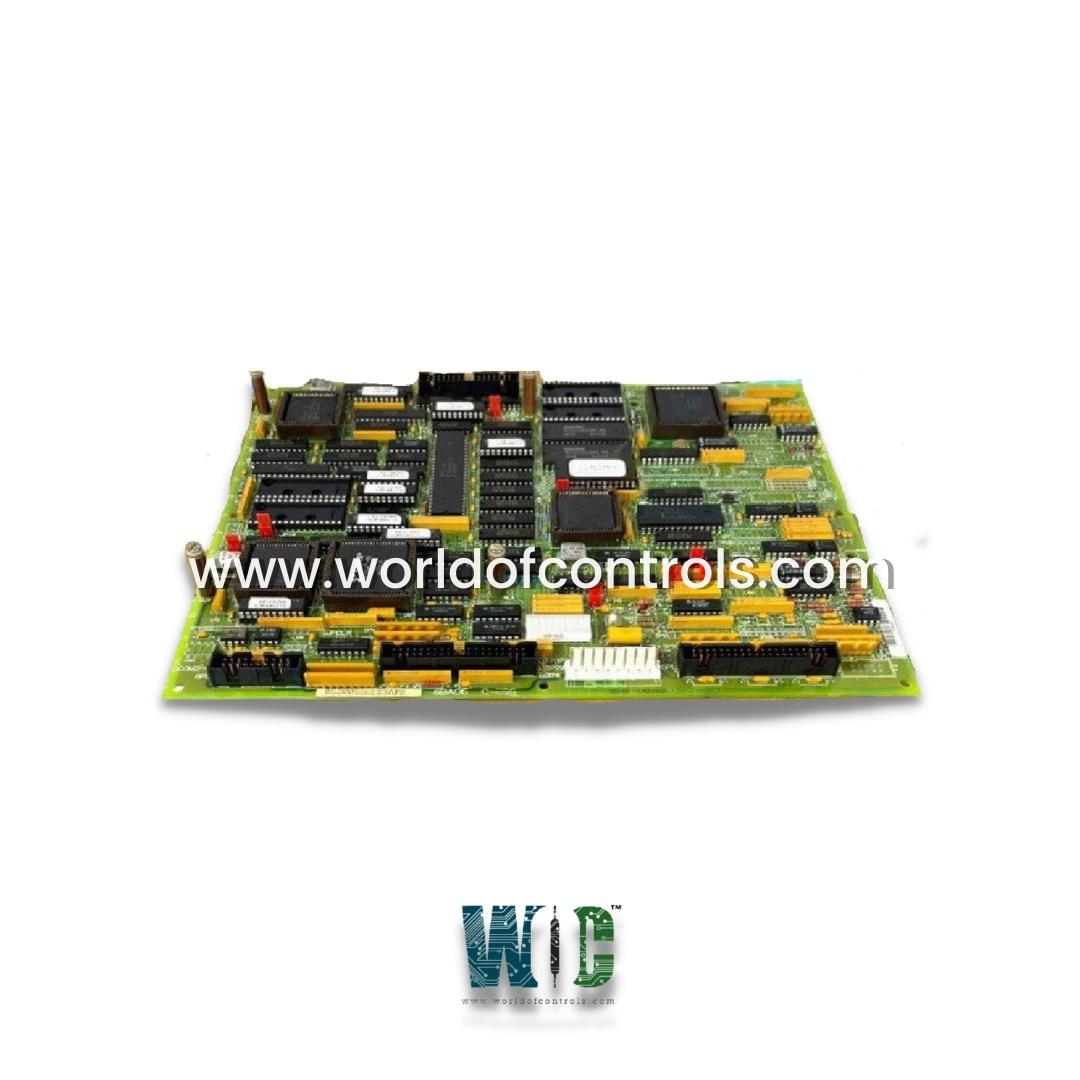
World Of Controls understands the criticality of your requirement and works towards reducing the lead time as much as possible.
DS200SDCCG3A - Drive Control Card is available in stock which ships the same day.
DS200SDCCG3A - Drive Control Card comes in UNUSED as well as REBUILT condition.
To avail our best deals for DS200SDCCG3A - Drive Control Card, contact us and we will get back to you within 24 hours.
SPECIFICATIONS:
Part Number: DS200SDCCG3A
Manufacturer: General Electric
Series: Mark V
Product Type: Drive Control Card
Number of channels: 12
Common Mode Voltage Range: +5 V dc
Maximum Lead Resistance: 15 Ohm
Analog output current: 0-20 mA
Operating temperature: -30 to 65 °C
Size: 8.26 cm high x 4.18 cm
Frequency: 50 or 60 Hz
Repair: 3-7 Day
Availability: In Stock
Weight: 2 lbs
Country of Origin: United States
Manual: GEI-100222
FUNCTIONAL DESCRIPTION:
DS200SDCCG3A is a Drive Control Card manufactured and designed by General Electric as part of the Mark V Series used in GE Speedtronic Turbine Control Systems. The SDCC contains the primary control circuitry and software for a drive or exciter. The SDCC consists of three 16-bit microprocessors and associated circuits coupled via dual-ported RAM. (Dual-ported RAM [DPR] is RAM configured as memory arrays that can be independently and simultaneously accessed by two microprocessors.) The SDCC also includes interface circuitry that connects with other boards to form various types of ac and dc motor drives. The interface circuitry controls and processes drive and motor signals, and customer I/O. (The interface circuitry and three main microprocessors are used for other functions in TC2000 applications.) The SDCC's three main microprocessors are:
CONFIGURABLE HARDWARE:
The SDCC includes configurable hardware that must be set correctly for the application:
These jumpers are used for factory tests or user application options. Most of the jumper selections have been factory-set. The test data sheets supplied with each controller (in the drive/exciter door pocket) indicate these factory-set positions. Table 2 lists the jumper descriptions, showing the default setting first.
SOFTWARE CONFIGURATION TOOLS:
Any adjustment, downloading, or replacement of software on the SDCC requires the use of the ST2000, GE Control System Toolbox, or LynxOS Drive Configurator. The applicable drive/exciter instruction book, an appropriate PC, and the ST2000, GE Control System Toolbox, or LynxOS Drive Configurator instruction book are also required for any software adjustments.
WOC has the largest stock of OEM replacement parts for GE Speedtronic Control Systems. We can also repair your faulty boards and supply unused and rebuilt boards backed up with a warranty. Our team of experts is available round the clock to support your OEM needs. Our team of experts at WOC is happy to assist you with any of your automation requirements. For pricing and availability on parts and repairs, kindly contact our team by phone or email.
What is the purpose of the dual-ported RAM in the Drive Control Card?
The dual-ported RAM (DPR) is used to allow the microprocessors to access memory independently and simultaneously. This allows for more efficient communication between the processors, as the DCP, MCP, and CMP can all access and share memory in parallel, improving processing speed and coordination within the control system.
What types of motor control functions does the Drive Control Card support?
The Drive Control Card supports both AC and DC motor drives. Its motor control capabilities include functions like current regulation, speed control, position control, and other motor-specific control features such as dc phase control and ac motion control. These features optimize the operation of motors in turbine control applications, ensuring smooth and efficient performance.
How is software stored on the Drive Control Card?
The Drive Control Card contains onboard software stored in five memory chips: four EPROMs and one EEPROM. The EPROMs store configuration data programmed during manufacturing, while the EEPROM stores field-adjustable parameters that can be modified as needed. These memory chips are socketed on the card, making it easier to replace or upgrade the software when required.